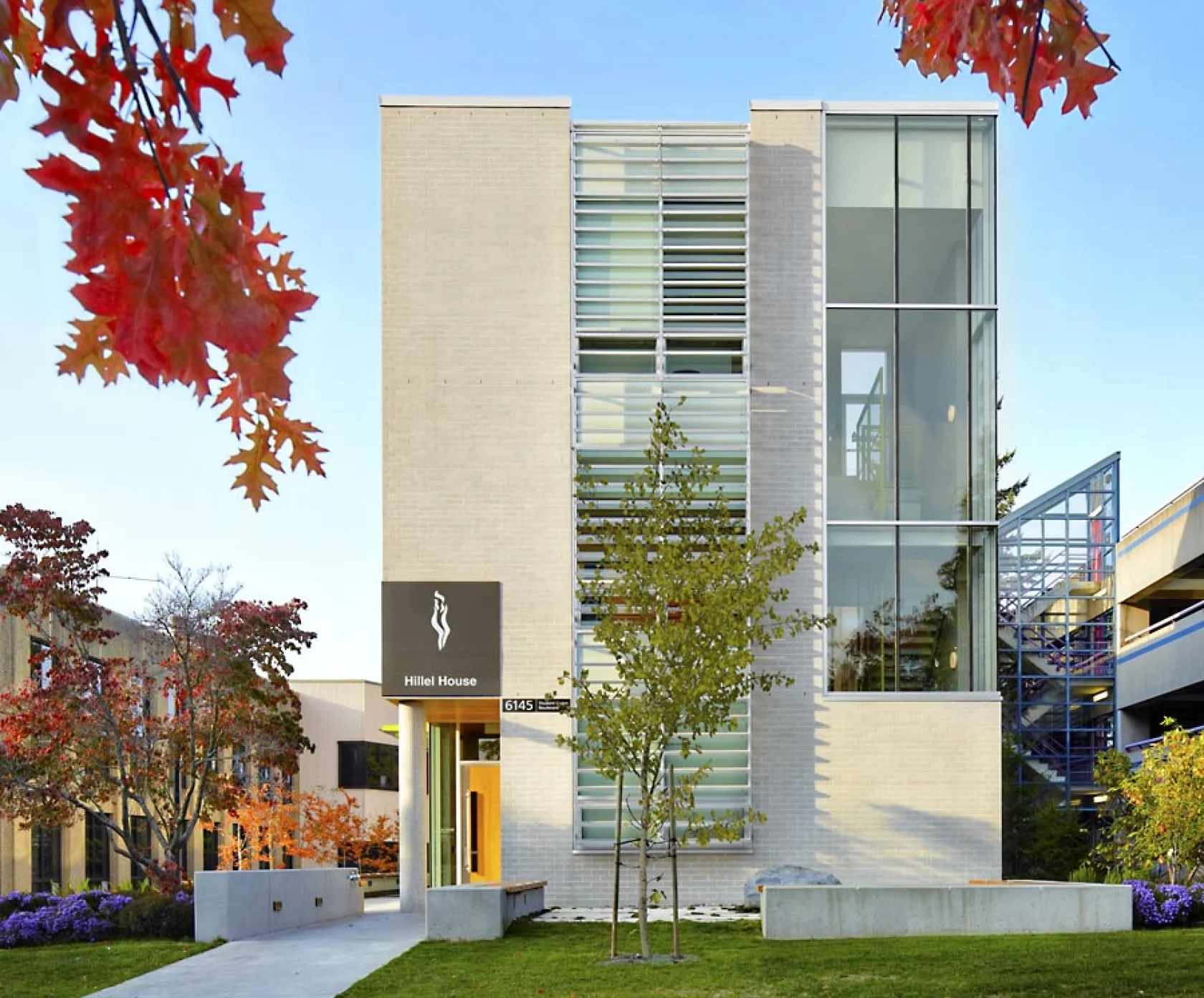Health
Hillels Boost Mental Health Support as Jewish Students Withdraw

In the wake of rising antisemitism, Jewish students at the University of British Columbia (UBC) have begun to withdraw from campus life, seeking refuge primarily in the Hillel building. Following the events of October 7, 2023, when Hamas launched attacks against Israel, many students reported feelings of anxiety and distress, prompting Hillel BC to expand its mental health support services significantly.
According to Ohad Gavrieli, executive director of Hillel BC, the campus environment has become increasingly hostile for Jewish, Zionist, and Israeli students. “Simple classroom environments have become hostile,” he said, noting that many students no longer felt safe attending lectures or engaging in campus activities. The situation escalated quickly as students expressed fears of harassment and intimidation, leading to a mental health crisis.
Research from UBC indicates that Jewish students experience a notable increase in depressive symptoms correlated with rising antisemitism-related stress. A study led by former UBC student Talia Morstead and psychology professor Anita DeLongis surveyed 253 Jewish students across 108 institutions from January to May 2024. Findings revealed that students who withdrew from social interactions and campus life reported significantly poorer mental health compared to those who sought support or engaged with their peers.
Enhanced Counseling Services at Hillel BC
Recognizing the urgent need for mental health resources, Hillel BC partnered with Jewish Family Services (JFS) shortly after the attacks. This collaboration enabled the organization to provide on-site counseling services, quickly filling appointment slots as students sought help. Initially, one counseling intern was added, but due to overwhelming demand, a second intern soon joined. Despite these efforts, both interns reached their capacity as more students came forward, reporting feelings of fear and isolation.
By early 2024, Hillel BC hired a certified counselor to address the complex issues students were facing, including harassment and trauma linked to their backgrounds. The organization now employs a full-time registered counselor and maintains additional clinicians to meet the growing demand. This staff includes a specialist dedicated to supporting students who have experienced severe antisemitic incidents.
To streamline access to mental health resources, Hillel BC launched an online intake tool called “We Are Here.” This portal enables students to identify their specific issues and directs them to the appropriate support services, clarifying whether a clinical referral or emergency assistance is necessary. Gavrieli emphasized that while Hillel BC is committed to supporting students, it is not an emergency service.
Creating a Safe and Supportive Environment
Clinical counselor Talya Wollner, who completed her practicum at Hillel before becoming a registered clinician, has witnessed firsthand the emotional toll these events have taken on students. Many have isolated themselves, attending classes only in the Hillel building. “Hillel became a refuge for these students,” she noted, adding that the prevailing atmosphere on campus has led to feelings of disconnection and anxiety.
Wollner’s approach is rooted in trauma-informed care, helping students understand their reactions to fear and threat. She teaches mindfulness techniques to help them manage their stress responses and provides practical guidance on navigating campus life safely. This includes discussing strategies for attending classes and participating in events without feeling overwhelmed or threatened.
A significant barrier to accessing mental health services is the unfamiliarity many students have with counseling. Wollner works to demystify the therapy process, making it approachable and accessible. She often meets with students in informal settings, such as over coffee, to encourage open dialogue.
The changes at Hillel BC mirror a broader shift within Hillel organizations across Canada. According to Jay Solomon, chief advancement officer for Hillel Ontario, the organization has been proactive in expanding mental health services. They have established a province-wide team of wellness professionals, increasing from one therapist to a network that now includes eight specialists. Solomon noted that the decision to invest in wellness was made well before the events of October 7.
The impact of this expanded support is evident, as Jewish students increasingly seek Hillel not only for safety and belonging but also for healing and mental wellness. As the environment on campuses evolves, Hillel organizations are responding with initiatives designed to prioritize mental health, recognizing its foundational importance in fostering a supportive community for Jewish students.
-

 Politics3 weeks ago
Politics3 weeks agoSecwepemc First Nation Seeks Aboriginal Title Over Kamloops Area
-

 World4 months ago
World4 months agoScientists Unearth Ancient Antarctic Ice to Unlock Climate Secrets
-

 Entertainment5 months ago
Entertainment5 months agoTrump and McCormick to Announce $70 Billion Energy Investments
-

 Lifestyle4 months ago
Lifestyle4 months agoTransLink Launches Food Truck Program to Boost Revenue in Vancouver
-

 Science5 months ago
Science5 months agoFour Astronauts Return to Earth After International Space Station Mission
-

 Technology3 months ago
Technology3 months agoApple Notes Enhances Functionality with Markdown Support in macOS 26
-

 Top Stories2 months ago
Top Stories2 months agoUrgent Update: Fatal Crash on Highway 99 Claims Life of Pitt Meadows Man
-

 Lifestyle3 months ago
Lifestyle3 months agoManitoba’s Burger Champion Shines Again Amid Dining Innovations
-

 Sports5 months ago
Sports5 months agoSearch Underway for Missing Hunter Amid Hokkaido Bear Emergency
-

 Politics4 months ago
Politics4 months agoUkrainian Tennis Star Elina Svitolina Faces Death Threats Online
-

 Politics4 months ago
Politics4 months agoCarney Engages First Nations Leaders at Development Law Summit
-

 Technology5 months ago
Technology5 months agoFrosthaven Launches Early Access on July 31, 2025





















